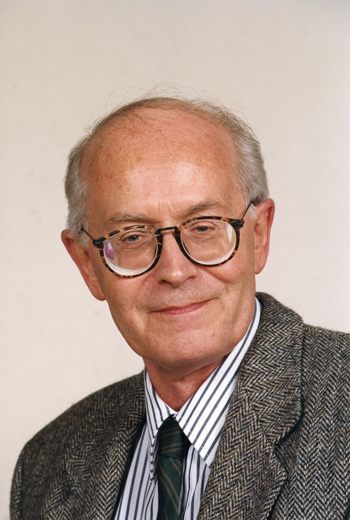
In a testament to Australian scientific excellence, Professor Richard Robson FAA FRS has been announced as one of three scientists to win the 2025 Nobel Prize in Chemistry.
The Academy Fellow shares this prize with his colleagues Professor Susumu Kitagawa FRS from Kyoto University and Professor Omar M. Yaghi from the University of California, Berkeley.
They were awarded the Nobel Prize for their development of a new form of molecular architecture: metal-organic frameworks, or 'MOFs' for short.
MOFs (metal-organic frameworks) are special materials made by connecting metal atoms with long, carbon-based molecules. This creates a crystal with large cavities inside. Chemists can change the building blocks to make MOFs that can trap and hold certain substances, like gases or water. MOFs can also help drive chemical reactions or even conduct electricity.
Following the Nobel Laureates' groundbreaking discoveries, chemists have built tens of thousands of different MOFs. Some of these may contribute to solving some of humankind's greatest challenges, with applications that include separating per- and polyfluoroalkyl substances (PFAS) from water, breaking down traces of pharmaceuticals in the environment, capturing carbon dioxide or harvesting water from desert air.
Professor Robson, from the University of Melbourne, says his discovery began while teaching molecular structure and constructing models of basic inorganic structures.
"As I was constructing these models, plugging metal rods of clearly defined dimensions into wooden balls with accurately drilled holes, the thought arose: what if we used molecules in place of the balls and chemical bonds in place of the rods?" he said.
"Professor Robson joins an esteemed cohort of Academy Fellows such as Professor Brian Schmidt AC, Professor Peter Doherty AC, and Professor Barry Marshall AC who are world-leading scientists in their fields," said Professor Chennupati Jagadish AC, President of the Australian Academy of Science.
"The work of Professor Robson and his colleagues was 46 years in the making. Yet their fundamental research has enormous applications, from harvesting water from the air to drug delivery and even carbon dioxide removal from the atmosphere."
Professor Robson's scientific career has been supported by funding from the Australian Research Council, particularly the Australian Research Grants Committee that supported his work since 1987, preceding the publication of his seminal articles.
It is believed that this is the first Australian Nobel Prize winner whose research was funded by the ARC. Other than Laureate Professor Peter Doherty AC, all other winners conducted their seminal work abroad or were funded by other sources. This Prize reflects the maturity of the Australian post-war research effort.
"These inventions demonstrate the importance of the Australian Research Council and its role in providing patient investment in fundamental research," Professor Jagadish said.
"Groundbreaking discoveries often take place when researchers are given the time to do what they do best.
"Our warmest congratulations go to Professor Robson and his colleagues for this significant achievement and global recognition," Professor Jagadish said.
Professor Robson was elected a Fellow of the Australian Academy of Science in 2000 and the Royal Society of London in 2022.






